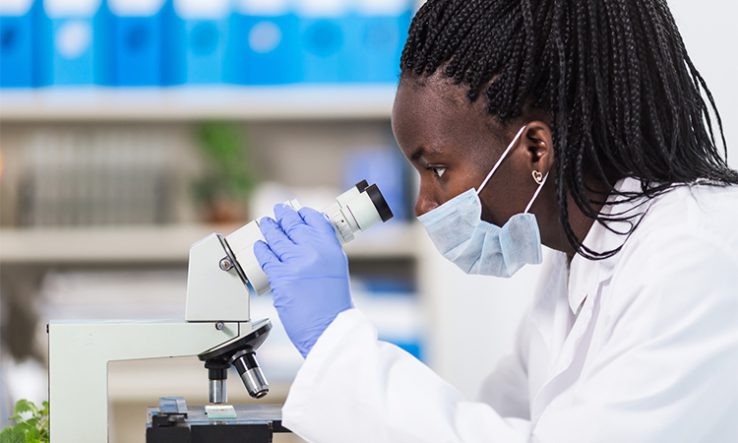
But patchy data means continent-wide picture is unclear
Three Francophone African countries—Burkina Faso, Mali and Senegal—have seen their proportion of women scientists grow in the past decade.
The data, extracted from the 2021 United Nations Educational, Scientific and Cultural Organization Science Report due in April, is not representative of the continent.
Senegal’s proportion of women natural scientists grew from 16.7 per cent in 2010 to 23.1 per cent in 2015. In Mali, the proportion rose from 7.2 per cent in 2006 to 22.2 per cent in 2017, and in Burkina Faso from 10.1 per cent in 2010 to 17.4 per cent in 2017.
However, several African countries saw drops in the proportion of women in their natural science cohorts over similar timeframes, according to data in the excerpt published on 11 February. Angola’s proportion shrank from 35 per cent to 32.4 per cent between 2011 and 2016. In Ghana, women made up only 9.3 per cent of natural scientists in 2015, a precipitous drop from 16.9 per cent in 2010.
Overall, the proportion of natural scientists who are women in Africa on Unesco’s database has remained steady at around a quarter over the past decade. It’s difficult to draw regional conclusions, the report’s authors say, as the data is patchy and does not include some of the continent’s most productive science countries such as Nigeria and South Africa.
This is not only a problem in Africa, they add. “Sex-disaggregated data on researchers are not being collected regularly by most countries in the Caribbean, Oceania, South Asia, Southeast Asia and sub-Saharan Africa, for instance, or by the populous countries of Bangladesh, Brazil, India and Nigeria.”
Like in many parts of the world, the proportion of women natural science graduates across the continent is higher than their representation in natural science careers. But again, this varies greatly between countries.
In Burkina Faso, 18.4 per cent of natural science graduates at tertiary level were women in 2018—nearly the same as the proportion of women natural scientists in the country. That contrasts with Ghana, where 26.8 per cent of natural science graduates were women in 2018, more than double its proportion of women in natural science jobs.
The report warns that the under-representation of women in science around the world means they risk missing out on the “jobs of the future” in science, technology, engineering and mathematics. “The United Nations anticipates that women will lose five jobs for every one gained through [the fourth industrial revolution], compared to the loss of three jobs by men for every one gained,” it says.